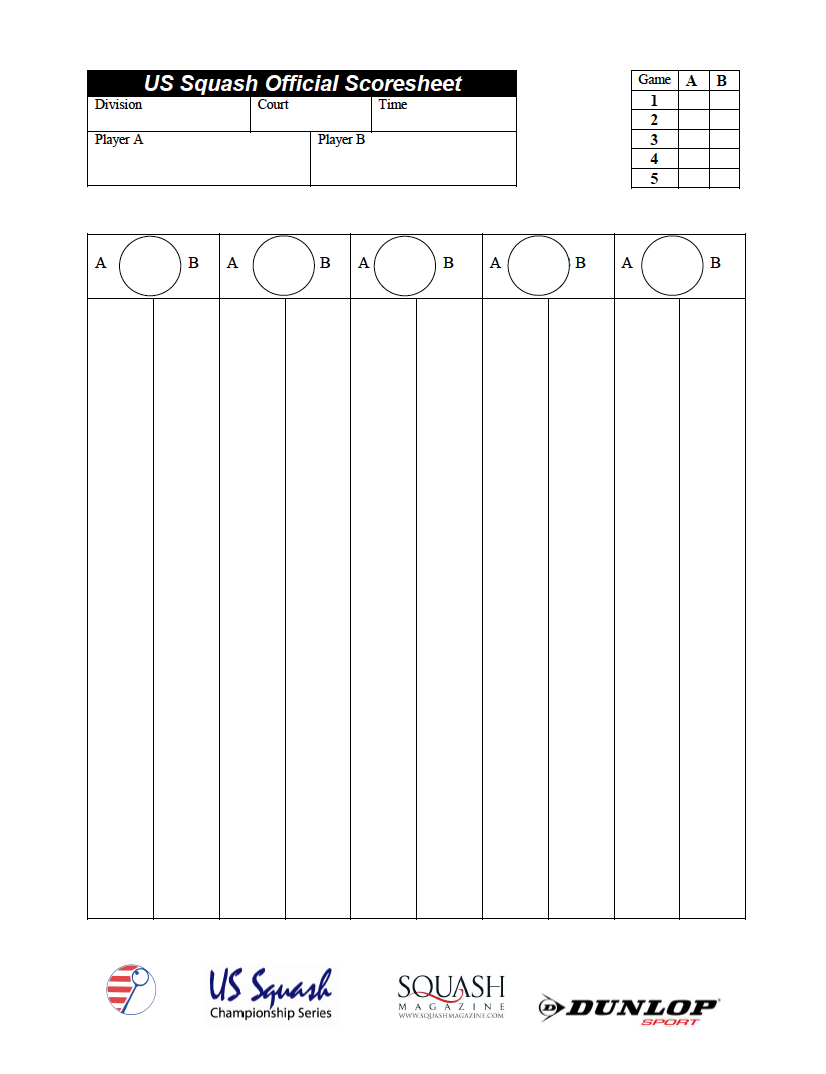By Rod Symington, WSF Referees and Rules Committee
A recent e-mail brought up two issues that have been addressed before in this column, but the correct outcome has clearly not taken root everywhere. The correspondent wrote:
I was recently in the semifinal of a junior tournament where there were some theatrics in the match that ended up influencing the views of the referees.

The scenario was as follows: at one game each, we were partially through the third. Unable to hear the referees, I asked them to call out the score, as I was about to serve. The Referee and Marker agreed that the score was 7-6 in my favor. I went on to win that rally, so the score was 8-6 to me. After the Marker called the score as 8-6, and as I was about to serve for the following point, my opponent contested the recorded score, coming out of the court to argue that the score had, in fact, been 7-6 in her favor after the previous point, when I had asked the referees the score. According to my opponent, the score was 7-7 instead of 8-6. Thus far, the referees had meticulously kept track of the score. Suddenly, with their written record of the score being challenged, they lost confidence in their own abilities to count and began to doubt whether or not 8-6 was the actual score.
One of the officials suggested that we cancel the last two rallies and revert to 6-6 because that was supposedly the last clear point. Upon hearing the ruckus, the Tournament Director made his way to the match and agreed with the officials that we should start over from 6-6, with my opponent serving. Not only did I lose my serve, but I lost two points that I had won fair and square.
What should the officials have done? Did the Tournament Director, who had not seen any part of the match, much less kept track of score, have the right to intervene and take away my points and my serve?
The answers to the questions posed by the writer are simple and clear—and everybody who participates in tournaments should understand them once and for all.
1. A properly officiated match has a Marker and a Referee, and both of them must keep the score. In the event of a discrepancy between the two score-sheets, the Referee’s score-sheet takes precedence—because the Referee makes the final decision about all aspects of the match. In the matter of score-keeping the Referee’s decision is final—even if she is wrong! (I once witnessed a top Referee overrule the Marker on the score, even though everyone in the arena knew he was wrong. Under the Rules he was right, even when he was wrong.)
2. The Match Referee is in charge of the match, and no one—no one—has the right or the authority to overrule the Match Referee on any issue concerning the match. (The reason for this should be obvious: Could you imagine the NFL’s Director of Referees interfering and telling the officials on the field what to do during a game?)
In the case of a Junior Tournament, where the officials may be a little uncertain about the Rules, the role of a Tournament Director would be to help them understand and apply the Rules (e.g. “Who is the Referee? Your score sheet is valid.”)—not to substitute a personal opinion or a makeshift solution.
In all sports—except where there is a video review mechanism—the Referee’s decision is final. That is a normal feature of sport: in the sport of squash by going on the court you are agreeing to accept the Referee’s decisions—in the knowledge that occasionally one or more may not be correct. All Referees need to recognize that they alone are in control of the match and to have the courage to take full charge—if necessary, by politely telling the Tournament Director to take a hike.


